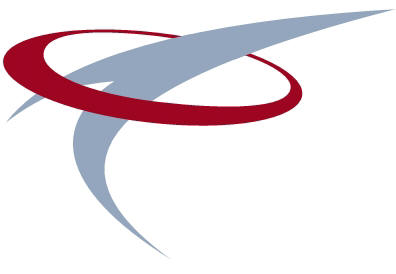
Le Lay Language Consulting |
||

Le Lay Language Consulting |
||
|
|
|
|
|
London is one of the most exciting places to visit. There are countless cultural activities taking place from world renowned west end shows such as Wicked, Cats, Phantom of the Opera and Legally Blonde to famous museums and art galleries such as the Science Museum, the Tate and the National Gallery of Art. London offers a huge variety of activities to choose from.
Example of half-day itineraries:
Visit of the British Museum (Parthenon sculptures, Rosette Stone, etc.)
Walk from Covent Garden (famous for its shops, street performers, bars, restaurants, theatres and the Royal Opera House) through Piccadilly circus, Trafalgar square, Horse Guard House, 10 Downing Street, Westminster abbey down to Houses of Parliament and the bridge over the Thames River by London Eye.
Walk along the South bank and visit of the British Film Industry
Walk by Tower of London, St-Catherine's dock and its marina, walk by Tower Bridge, by HMS Belfast and surroundings
Walk through Hyde Park, from Kensington Gardens to Buckingham Palace, St James park
Tate modern (international modern and contemporary art), bankers borough, visiting St Paulís cathedral after going through the bridge
National Portrait Gallery (portraits of the most famous people in British history)
Westminster Cathedral
National Army Museum
Natural History Museum (famous for its exhibition of dinosaur skeletons)
Victoria and Albert Museum (the world's greatest museum of art and design)
Science Museum, etc.
Arrival
You may feel very tired or disoriented when you first arrive. This is natural and could be because of jet lag, a combination of long distance travel and the time change. You will adjust after a few days and should feel better. If you do not, please speak to us or to your language school.
Getting Around
The main ways to get around London are the tube (Underground), buses, Docklands Light Railway (DLR) and British Rail (BR). Ticket types vary and single journey tickets are quite expensive. You should buy a weekly or monthly Oyster Card as you will be able to use Underground and/or buses as many times as you wish and the cost will be much cheaper. For further information see www.tfl.gov.uk/tfl/fares-tickets/oyster/general.asp/ or www.tfl.gov.uk to plan a journey.
Any full time student who is enrolled on a course for 14 weeks or longer can get a 30% discount for travel in London. Our registrars can give you an application form for a Student Oyster Photocard and help you fill out an application with a £10 administration fee payable to Transport for London. For further information visit Local transportation in London
We drive on the left in the UK. Please make sure that you always cross at traffic lights or a pedestrian crossing. Always look right then left then right. Look out for people on motorbikes and bicycles.
If you wish to drive in the UK and would like to know if your license is valid, visit www.dvla.gov.uk
Culture
Integrating into a new culture can be confusing and difficult (culture shock). If you try to learn as much about British culture, customs and behaviour as possible this should help. You will find that people will be a lot kinder and more helpful to you if you behave politely and show respect for others. For more information about British culture. www.ukstudentlife.com/Personal/Manners.htm
Health
There is trained first aid staff in the Language school.
NHS treatment is free if you are enrolled on a course of 6 months or more, an EU national or if your country has a full reciprocal health agreement with the UK. You will however need to pay for medicine. For stays longer than four weeks, we highly recommend you to register at your local NHS medical centre in the two weeks following arrival: non-permanent registration only.
If you need to see a dentist while you are in the UK, you will need to pay 75% of the cost of the treatment if you are registered with a dentist. If not registered with a dentist, you will have to pay the entire cost.
See www.nhsdirect.nhs.uk or www.ukcosa.org.uk for more information.
If you are not registered with a GP, there are many NHS walk-in centres in England where you do not need an appointment. They offer quick access to health advice and treatment and are usually open seven days a week from early morning to late evening.
Mobile phone
You can get free pay-as-you-go SIM card from any mobile phone boutique. You will be able to use it if your phone is unblocked.
If you want to keep using your own SIM card, you will need to ask your provider to activate the free European rooming service of your mobile phone before leaving your home country.
Visas
Students who are not from the European Union (EU) need a visa to enter the UK if wishing to pursue any course of studies. For periods of less than 24 weeks (6 months) you will need a Student Visitor Visa or a General Student Visa (Tier 4) for 24 (6 months) weeks or more. You can apply for your visa at the British Embassy or Consulate in your country. You can find information about visa application requirements at www.ukvisas.gov.uk or www.ukcosa.org.uk.
If you wish to extend your Student Visitor Visa, you need to apply from your home country. For students with General Student Visas you should apply to the Home Office for permission to remain in the country to continue your studies one month before your visa is due to expire. You must have at least 80% attendance to qualify for an extension.
Useful links
Security in the UK: www.educationuk.org/downloads/safety_1st.pdf
Information: www.ukcosa.org.uk www.visitbritain.com
Visas: www.ukvisas.gov.uk
Public health: www.nhsdirect.nhs.uk
Public Transportation in London: www.tfl.gov.uk
Weather: www.weatheronline.co.uk